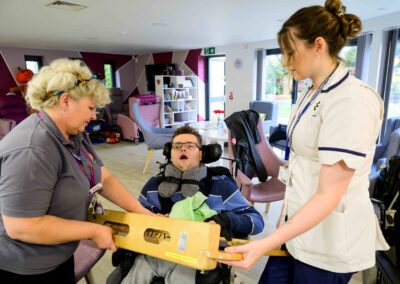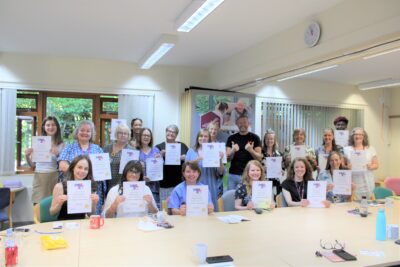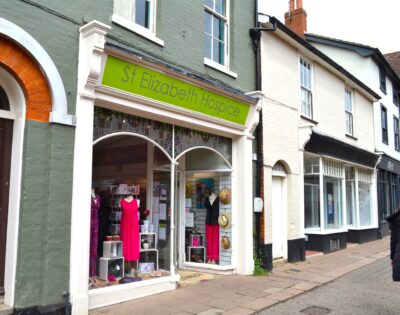This hospice care week we’re looking back at the positive effects of the hospice manifesto, launched one year ago
One year ago St Elizabeth Hospice launched its new ambition, Don’t let Death Kill Life.As part of hospice care week, the organisation takes a look at the positive effects of its harder hitting messaging, and its continuing plans to improve palliative and end of life care for people in Suffolk.Don’t let death kill life was launched in October 2017. The ambition sought to shift the perception that a hospice is simply a building where people go to die, and focus on supporting those living with progressive and terminal illnesses to maximise the life they have left through medicine and therapy. The impact a year on has been an increase in referrals to its services, an uplift in donations, and calls to the OneCall advice line have risen from an average of 1,300 calls to 1,900 calls per month. Following on from the success of this bold approach to align people’s views with the reality of hospice care, the hospice continues to lead the way in tackling some of the key issues around end of life care. Currently around 48% of people die in hospital and only about 1% of us really want to. Working in partnership with Ipswich Hospital, in May the hospice launched No Place Like Home, an initiative to identify those people in hospital, approaching the end of their life, and arrange discharge home, or to their preferred place of care. Approximately 70% of hospice services are delivered in the community, and No Place Like Home will help the hospice raise the vital funds to continue to increase its capacity to ensure that wherever possible, people can die with dignity in the place of their choosing. From January to June this year, the hospice provided 372 days of care to those who were discharged from hospital, saving hospital bed days which would have cost around £148,800. Additionally, the hospice has provided 888 care days to people living at home, which if they had been admitted to hospital would have cost around £355,200.Community manager, Sarah Godfrey said: “One of the key challenges for the hospice delivering services in the community of east Suffolk is that people often mistake the hospice community nurse specialists and healthcare assistants for MacMillan nurses, which leads to confusion. Currently there are no Macmillan community nursing services in east Suffolk as the hospice took over that responsibility some years ago.The aim of No Place Like Home is to help those people who have no need to be in hospital, to get home and have appropriate care in place at the end of their lives.”It is well researched that the earlier people access hospice services, the more effective palliative care can be for them. The increase in referrals and calls for advice in the last year demonstrates that, not only are people more aware of the help and support that the hospice can provide, but they are more willing to get in touch and ask for help.



